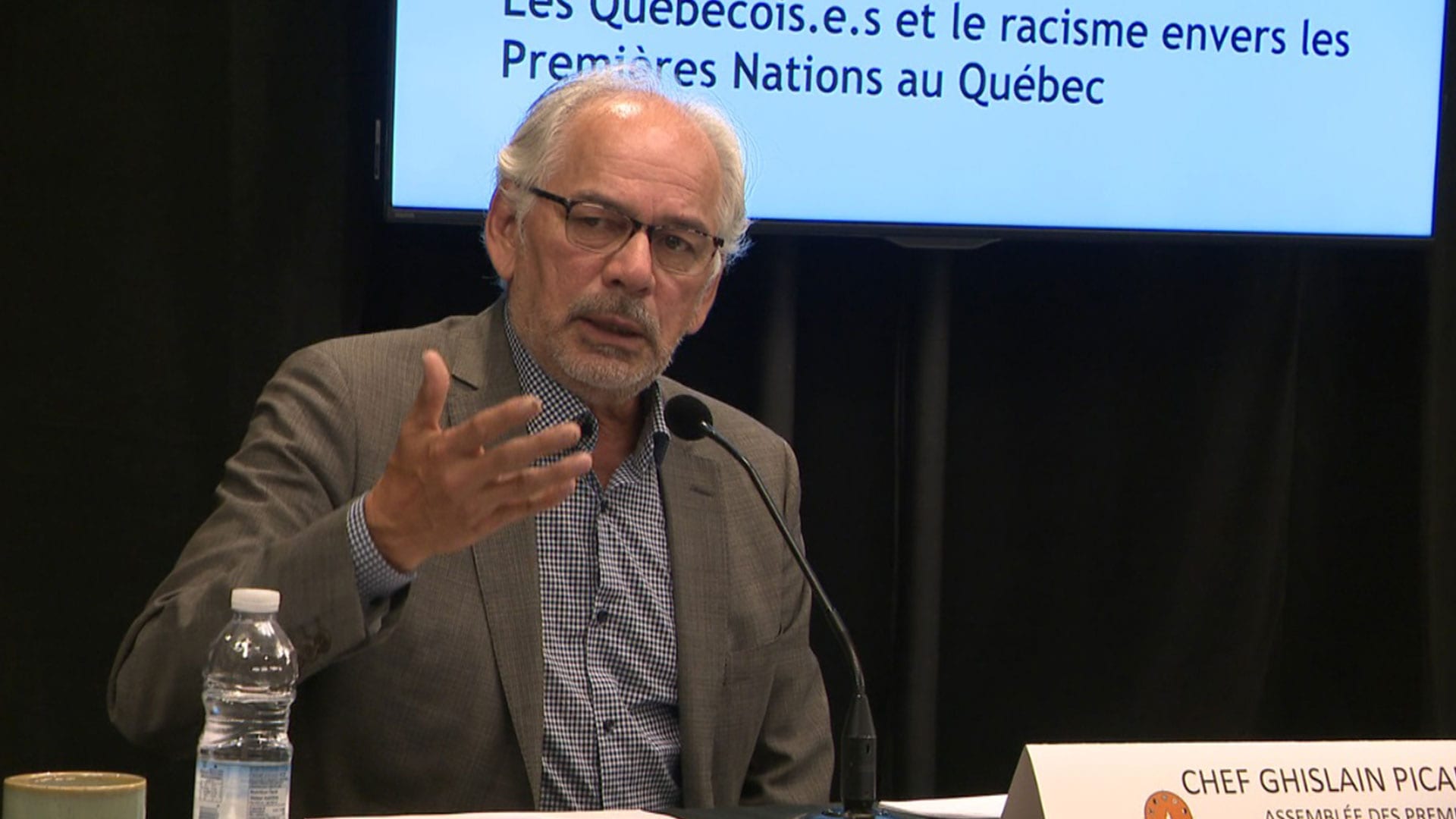Fed up with Quebec’s stalling on issues of systemic racism, the Assembly of First Nations Quebec-Labrador (AFNQL) announced Wednesday they are in the process of drafting their own action plan to combat it.
After publicly debating whether systemic discrimination in fact exists in Quebec, Premier Francois Legault announced formation of an “anti-racism task force” back in June.
Preferring an action-based approach, Legault announced at the same time that his task force would not hold public consultations or hear input from First Nations before releasing an plan by the tentative date of October 2021.
With several thorough reports already shelved – the Viens Commission, the MMIWG Inquiry report, and the United Nations Declaration on the Rights of Indigenous Peoples among them – AFNQL Regional Chief Ghislain Picard says he’s confident an Indigenous-led action plan will be ready by the end of next month.
“Rather than butting our head on the wall of governments that maybe are not as interested as we are – or not as interested as the people who elect them – well, we’re going to call on the people themselves of Quebec to tag along and support our work,” Picard told reporters.
READ MORE: Quebecers and Racism Against First Nations in Quebec
“If we have a premier who denies the presence of systemic racism, I mean, we can easily see that the process is biased,” Picard added.
In order to test the waters, the AFNQL commissioned Leger Marketing to conduct a survey and gauge public perception of the “knowledge and perceptions (attitudes, beliefs, prejudices) towards First Nations in Quebec.”
Leger went on to poll just over 1,000 non-Indigenous Quebecers throughout the month of July – half of whom do not live anywhere near a First Nations community.
Ninety per cent of survey respondents acknowledged that First Nations are subjected to racism, but many believe the problem is institutional, rather than individual.
Only one per cent of those polled believed First Nations are “never” subjected to racist remarks.

“Generally speaking, a majority of the Quebec population recognizes that racism exists towards First Nations in Quebec, and they are open minded and support Aboriginal claims,” the survey summary reads.
“They also expect their government to take a leading role in the fight against racism and discrimination.”
Aside institutionalized discrimination, survey respondents listed “academic failure”, “drop outs” and “high rate of suicide” as the specific issues they’re most aware of.
According to the study findings, people who reside in the Montreal area have a particularly negative outlook on the relationship between the police and the urban Indigenous population.
The majority of those polled believe Quebec should be prioritizing anti-discrimination efforts in the current context.
Considered privileged
Picard said the poll results demonstrate the days when First Nations were considered privileged are “clearly over.”
“The public opinion is more aware of our situation and realities, and the kind of challenges we have and the obstacles we face when dealing with governments. They have a better understanding,” Picard explained.
“The fact that we have such a high number of people thinking that ‘Yes, First Nations are victims of racism and discrimination’ is to me, good news,” he added.
A vast majority of respondents said they believe First Nations are not treated on the same social footing as other people living in Quebec – and they perceive the relationship with government to be largely unchanged in the last five years.
Ninety-one per cent said they believe the province has an important role to play in maintaining equality.
Jumping-off point
A good jumping-off point, according to the survey results, would be to amend how First Nations issues are taught in school.
Over half (58%) of those polled admitted to having “little to no knowledge” of Indigenous issues and realities in Quebec – but they expressed an interest in learning more about “traditions, heritage and history.”
Younger generations (ages 18-34), according to the Leger poll, were most critical of the lack of representation, or collaboration with, First Nations in Quebec.
They were particularly critical of media coverage of Indigenous issues – or a lack thereof.
The AFNQL says it will be “impossible” for the Legault government to turn a blind eye to their initiative; they’re calling on the support of allies to bolster the cause after the eventual release of their tailor-made action plan.
“We have a government who made a decision, who took a decision [and] designed a process itself. And it’s going to lead itself alone,” Picard said. “To me, that’s not really inspiring.”
Based on the survey results, Picard says the AFNQL is appealing to the public to ensure the recommendations of their future action plan are applied in practice.
“In order to do that, we need to call on alliances,” he said.









